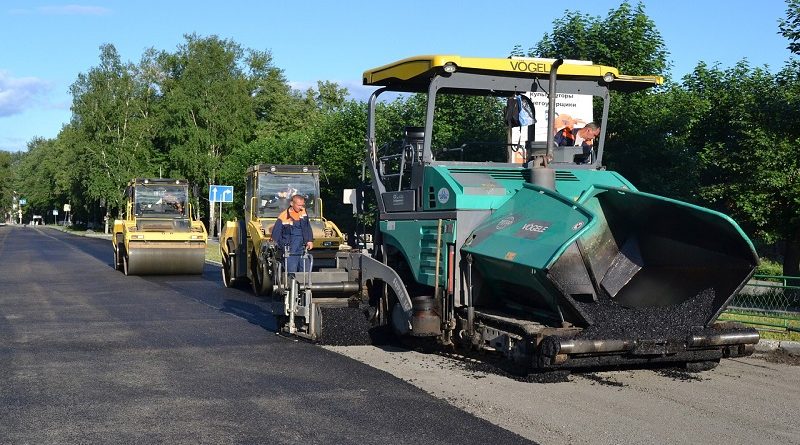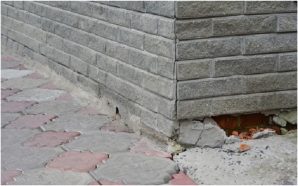Asphalt is a popular material due to its superior performance and longevity. Although it is strong, over time, it can get damaged or show signs of wear. Knowing what can deteriorate the integrity of your asphalt can help you put preventive measures in place to ensure it lasts the test of time. Here are some of the most common causes of asphalt damage.
Inferior installation
Hiring a reputable company will increase your chances of ending up with a quality job that lasts. If it doesn’t, it’s something that is out of your control, unfortunately, however, before hiring someone to lay asphalt at your place, ask them what kind of warranty they offer on their installation. This way, if an issue does arise, you’ll know you are covered.
Exceeding its load-bearing capacities
Before your asphalt is laid, the installer should run through some questions to determine how thick the asphalt needs to be, and the appropriate installation technique required to ensure its suited to the level of traffic it will see. For example, if you have a driveway installed and it is only designed to weight bear cars and heavy machinery or vehicles are frequently driven across or parked on it, it’s not going to last as long as it should. If you need your driveway to withstand such weight, this should be discussed in the planning stage to ensure the correct thickness is laid.
Cars driving on the edge of the asphalt
Damage is often caused to asphalt from cars driving on the edge of the driveway rather than in the centre of it. This typically occurs when two cars are driving on the driveway at the same time from opposite directions when trying to pass one another and the driveway is too narrow to do so.
Exposure to water
All asphalt will inevitably be exposed to water, and the installation technique can have a huge influence on how your driveway withstands constant moisture. Drainage and adequate grading should be considered to ensure that water doesn’t pool on top of your asphalt. Water sitting on top of the surface for extended periods can compromise the strength of the asphalt, and cracks may form. When the water gets into the cracks, it makes its way to the substrate and weakens it. Once this happens and a car drives over it, it can cause a pothole.
Not seeing repairs early on
If issues aren’t fixed promptly, cracks can spread, potholes can expand, and the entire area of asphalt can be jeopardised. An asphalt repair is more cost-effective than an entire asphalt replacement. If you notice cracks or dents in your asphalt forming, get them seen as soon as you can to prevent them from worsening.
Oil stains and harsh chemicals
Using abrasive and harsh chemicals on asphalt can prematurely wear away at the top layer, the same applies to oils stains that aren’t removed. Avoid using unsuitable cleaning products to clean your asphalt and if hazardous chemicals or oil are spilt on it, ensure it is cleaned up promptly to prevent unnecessary erosion.
Oxidation
Oxidation of asphalt is simply exposure to oxygen, and over time it can cause the asphalt to become brittle and lose its flexibility. When asphalt loses its flexibility, it is susceptible to cracks. Once the asphalt starts to crack it allows more oxygen and water to penetrate to the deeper layers which causes the problem to worsen. Pair this with high traffic, and your asphalt will be ruined in no time.
Earth movements
Earth movements are very normal, and there’s nothing we can do to prevent this. Asphalt is strong and it does have a slight flex which allows for this type of movement without the risk of cracking however, when the asphalt isn’t in the best condition, to begin with, you may notice cracks and damage to the surface. The best way to ensure your asphalt is in good condition is by maintaining it regularly.
UV Rays
When asphalt is first laid, it is a deep, dark black colour but, the sun’s harmful UV rays cause the asphalt to fade. This continuous exposure can cause the surface to break down, and cracks and potholes can form. While you can’t do anything about the sun, you can ensure that your asphalt lasts a long time by checking out its condition every so often. If cracks or inconsistencies are forming, it is best to get these seen as soon as you can.
Recognising signs of damage
The best way you can protect your asphalt from premature damage is by observing for signs of wear or cracks. You may think a minor crack is harmless, but it doesn’t take long for a small crack to become a large one when left to its own devices. Applying seal coats when necessary and getting cracks filled can help you keep your asphalt looking good for many years to come. Ensure you are following the weight-bearing capacities and remove potentially erosive contaminants from the surface as soon as they occur.
Whether you have asphalt already or you are considering it for your home, our highly skilled team here at Colossal Allies Asphalt can help you with repairs or an entirely new project! We specialise in driveways, repairs, sealing, trenching, and so much more. Contact us today to discuss your options.









